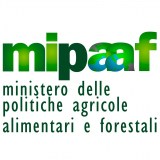
The first evidence of olive growing in Abruzzo date from the period of Roman domination, when the protectionist measures adopted by Rome favoured an expansion of olive-growing and the olive oil industry. Virgil speaks of olive trees in the Marsica, near Lake Fucino, while Ovid documents their production in the Peligna Valley.
With the fall of the Roman Empire and the beginning of the barbarian invasions and Lombard domination, production and commerce in general began to decline through to the Middle Ages and an autarkic economy where production was destined to family consumption.
The arrival in Italy of the Cisterecian Benedictines, around the 12th century, led to a resumption of the economic and social development of the region. It was probably the abbeys, known for their industriousness, that laid the foundation for the selection and recovery of olive cultivation.
There is documentary evidence of a significant volume of traffic beginning in the late Middle Ages, including oil, between the Abruzzo ports and Venice, Dalmatia and other towns on the Adriatic coast.
Under Spanish domination, Abruzzo agriculture in general declined again; in the early 19th century there were significant social and economic changes: the feudal latifundia latifundia were transformed into bourgeois estates and church property was made available to farmers through leasing and emphyteusis.
All this led to the creation of large bourgeois properties and medium and small farms through a change that was completed towards the end of the century when, thanks to permanent settlement in the countryside, there was a particular development of tree crops including olive trees in particular.
The Area
The area in which Olio Aprutino Pescarese DOP is produced belongs to the province of Pescara, in the heart of Abruzzo. The area derives its name from an ancient Italic ethnic group that inhabited the region around the 5gh century BC and is characterized by mountains and hills between the Sirente area and the Adriatic. The Province of Pescara has a climate that is particularly favorable climate for the production of high quality olive oil.
The province of Pescara has the optimum conditions for olive trees from both a pedological and climatic point of view; the soils are generally of medium texture with a predominance of limestone, clay, sand or silt, and with varying degrees of fertility in terms of minerals and organic matter.
The temperatures are relatively mild and precipitation, which is not too abundant, is concentrated in the winter-spring and is sufficient to the needs of the plant. Moreover, the olive-covered hills have constant ventilation that prevents the stagnation of air masses and the formation of high temperatures, thus limiting the occurrence of infections and the development of parasites.
It is no coincidence that the Province of Pescara was among the first in Italy to obtain PDO recognition for its Pescara Aprutino Olive Oil.
The production of extra-virgin DOP Aprutino Pescarese Olio is disciplined by specific Production Regulations, recognized by the European Community with Regulation 1263 of 1 July 1996.
By Consorzio di Tutela dell'olio extravergine di oliva Aprutino Pescarese with MiPAAF



